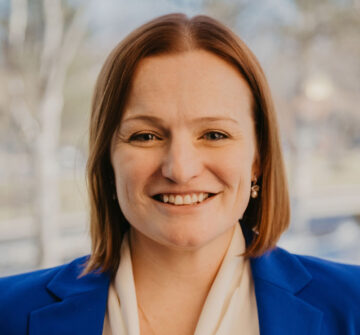From high blood pressure, to depression, to autoimmune conditions, women are suffering at higher rates from many illnesses and diseases. Furthermore, exclusion of women from clinical trials and a lack of organized capital has hampered our understanding of any sex-based variation in diseases that present across genders. This has resulted in a general underrepresentation and lack of focus on women’s health. Not understanding and studying these nuances impacts not only patients, but also employers and the healthcare system.
Women are 50-75 percent more likely than men to have an adverse drug reaction across all therapeutic indications, and as a result, more than 80 percent of drugs that have been pulled from the market over safety concerns are due to adverse effects specifically in women. While some progress has been made, from increased female participation in clinical trials to women’s health in general being better defined, more work remains.
The MLSC aims to support and incentivize translational project teams who are developing novel solutions in this area of need. The Center launched its Women’s Health initiative in 2020, to turn the tide against the severe lack of organized capital and incentives around a coordinated Women’s Health approach. The MLSC administers three programs to bolster women’s health. This past fiscal year, these programs awarded $5.3 million to 15 projects.
The Women’s Health Program supports collaborative projects that aim to improve the discovery, technical innovation, and/or analysis of datasets to answer pressing life science questions around women’s health.
| Awardee Institution | PI(s) | Industry Partner | Project Title |
| Harvard Medical School Department of Systems Biology | Debora Marks, Associate Professor | JURA Bio | Pathfinder: Studying lymphocyte repertoire dynamics during pregnancy in autoimmune sufferers |
| Dana-Farber Cancer Institute | Elizabeth Mittendorf, Rob and Karen Hale Distinguished Chair in Surgical Oncology Vice Chair for Research, Department of Surgery BWH Co-Leader, Breast Program DFCI/Harvard Cancer Center | PathAI | Leveraging digital pathology to identify and cure high risk breast cancer |
| MIT | Linda Griffith, Professor of Biological Engineering | Cygnal | Nerve-immune Interactions as A Target of Endometriosis and Adenomyosis therapies |
| Tufts University | Jamie Maguire, Associate Professor | Sage Therapeutics | Elucidating sex differences in network aberrations in depression while building equitable infrastructure for research |
The Women’s Health Innovation Grants target innovations that have translational potential and preliminary supporting data, but still require a key set of proof of concept experiments prior to attracting a commercial partner or spinning out into a new company.
| Awardee Institution | PI | Project Title |
| Beth Israel Deaconess Medical Center | Zsuzsanna K Zsengeller, Instructor of Medicine, Department of Medicine, Division of Nephrology | Develop first in class agents that mitigate the underlying causes of preeclampsia |
| Boston Medical Center | Katharine O’Connell White, Associate Professor, Obstetrics and Gynecology | Non-hormonal female contraceptive |
| Boston University | Ana Fiszbein, Assistant Professor, Department of Biology | Development of novel breast cancer therapies by targeting epigenetic dysregulation in tumors |
| Dana-Farber Cancer Institute | Elizabeth Stover, Assistant Professor, Medical Oncology | Microdevice to measure drug response in ovarian cancer patients |
| Dana-Farber Cancer Institute | Sara M. Tolaney, MD, MPH Chief, Division of Breast Oncology, Dana-Farber Cancer Institute Associate Professor of Medicine, Harvard Medical School | Study of microbiome in relation to breast cancer and treatment options |
| Massachusetts General Hospital | Curtis Cetrulo, Associate Professor of Surgery, Harvard Medical School, Director, Laboratory for Cell Therapy, Massachusetts General Hospital | Treatment of autoimmune conditions through CAR-T cells |
| Massachusetts General Hospital | Jian Shu, Assistant Professor | Single-cell and multiomic approach to molecular and cellular ecosystem to understand women’s health conditions |
| Massachusetts Institute of Technology | Linda Griffith, Professor of Biological and Mechanical Engineering | Increasing access to egg freezing through automation |
| University of Massachusetts, Amherst | Stephanie L. Padilla, Assistant Professor | Thermal therapeutic to regulate sleeping in menopausal women |
| Worcester Polytechnic Institute | Christina Bailey-Hytholt, Assistant Professor, Chemical Engineering | Increase understanding of maternal-fetal interface through lipid-based models |
This past June, the MLSC was a sponsor of 2021 National Summit on the Health of Women, organized by the Mary Horrigan Connors Center for Women’s Health and Gender Biology at Brigham and Women’s Hospital/Harvard Medical School. The Summit convened an engaged multi-stakeholder group of experts across the bioscience ecosystem to share and celebrate recent advancements for the health of women. It promoted impactful discussions on gender equity in medicine to further advance the health of women through innovative translational research.
The MLSC was proud to collaborate with the Connor’s Center for the Summit to showcase the work being done in women’s health in Massachusetts and show the opportunity that exists for women’s health in the Commonwealth. This collaboration also included a $50,000 grant through the First Look Awards to support early translational research performed by faculty and at a Massachusetts not-for-profit research institution that furthers our understanding of sex and gender differences especially for diseases or conditions that affect women exclusively, predominately, or differentially.
Dr. Sallie Schneider, Director of the Biospecimen Resource and Molecular Analysis Facility at Baystate Medical Center, was the inaugural recipient of the First Look Award to support proof of concept work for technology being developed to identify individuals at risk of developing breast cancer and which treatment options will be most effective for individual patients.
With continued strategic investment in this area, Massachusetts is poised to become the leader in the Women’s Health space. New rounds of the Women’s Health program and First Look Awards are currently underway with a new round of the Innovation Grants to launch in the coming months.


